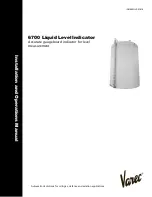
Keysight 85033E User’s and Service Guide 1-
7
General Information
When to Calibrate
When to Calibrate
A network analyzer calibration remains valid as long as the changes in the
systematic error are insignificant. This means that changes to the uncorrected
leakages (directivity and isolation), mismatches (source match and load
match), and frequency response of the system are small (<10%) relative to
accuracy specifications.
Change in the environment (especially temperature) between calibration and
measurement is the major cause in calibration accuracy degradation. The
major effect is a change in the physical length of external and internal cables.
Other important causes are dirty and damaged test port connectors and
calibration standards. If the connectors become dirty or damaged,
measurement repeatability and accuracy is affected. Fortunately, it is relatively
easy to evaluate the general validity of the calibration. To test repeatability,
remeasure one of the calibration standards. If you can not obtain repeatable
measurements from your calibration standards, maintenance needs to be
performed on the test port connectors, cables and calibration standards. Also,
maintain at least one sample of the device under test or some known device as
your reference device. A verification kit may be used for this purpose. After
calibration, measure the reference device and note its responses. Periodically
remeasure the device and note any changes in its corrected response which
can be attributed to the test system. With experience you will be able to see
changes in the reference responses that indicate a need to perform the
measurement calibration again.












































